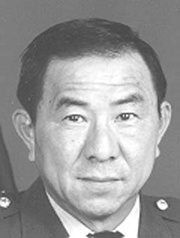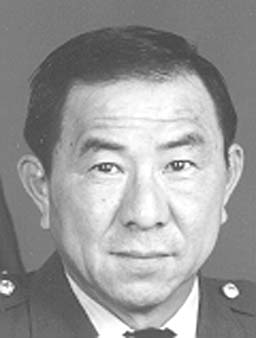
日系アメリカ人兵役体験記録データベース

Yukio Otsuka
7th Infantry Division, Korea ('55-'56)
25th Infantry Division, Hawaii ('57-'60)
U.S. ACAN Station, Hawaii ('60-'61)
US STRATCOM Station, Germany ('61-'64)
25th Infantry Division, Vietnam ('66-'67)
HQ US STRATCOM, Hawaii ('67-'70)
60th Signal Battalion, Vietnam ('71-'72)
US Signal Support Agency, Hawaii ('72-'75)
HQ US STRATCOM, AZ ('75-'76)
US Communications Security Activity, AZ ('76-'85)
Budget, acquire, distribute and provide life-cycle support for cryptographic equipment and codes for the U.S. Army.
As Inspector General, HQTRS,US STRATCOM, conducted random and scheduled inspections of major subordinate commands worldwide, and monitored their mission readiness, morale, and compliance with rules and regulations. Also investigated complaints and grievances.
As Commander of US Army Communications Security Activity, was responsible for programming, budgeting, and acquisitions, distributing and providing life-cycle support for all cryptographic equipment and codes used by the U.S. Army. Supervised high level technicians and logisticians.
Bronze Star Medal for establishing an efficient and effective base camp communications system at Cu Chi, Vietnam, as a member of the 25 Infantry Division Advance Party.
Meritorious Service Medals (3 awards) for planning, installing and operating the prototype automated mesage processor at Ft. Shafter, HI and for planning and supervising the transfer of the military cable and telephone system in HI, to commercial operation, and for fielding and supporting critical cryptographic equipment and codes on very short notice, for classified military operations
Combat Infantryman's Badge for service in Korea.
Second Korean tour during '55-'56; War was over and living conditions had improved, not radically, but a lot better than during my previous tour. My change of status to an officer brought differences not only in living facilities, but in other areas as well. Our tents were slowly replaced by more permanent quonset huts. Beds with springs and mattresses were replacing canvas cots. Fuel for stoves were plentiful and warm building were the norm, unless your Korean 'house-boy' forgot to have the fuel tank filled when the delivery truck came by. Food was better at the officer's mess. In exchange for better facilities and food, I was assigned greater responsibilities.
VIETNAM ('66-'67); Unlike Korea, there were no front lines. Combat troops lived in base camps while the enemy(Viet Cong) lived anywhere. Combat units arriving in Vietnam were well-trained and equipped. Living conditions and food were a lot better than in Korea. Combat soldiers lived in semi-permanent base camps, and had hot meals, showers, medical facilities, PX privileges, and other morale and welfare care. The R&R program permitted soldiers to meet families in Hawaii.


